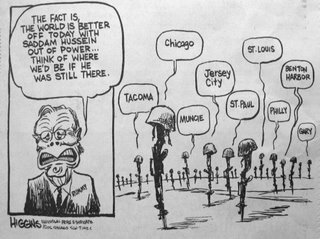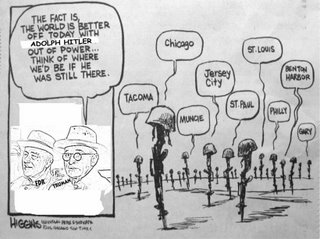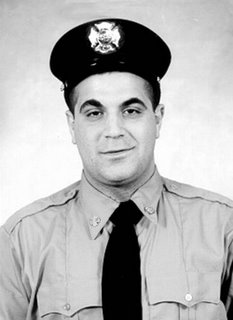I don’t usually comment on Steve Duin’s
Oregonian column because he tends to present more of an emotional side to issues. But, his
latest column raises important issues about sitting Oregon judges and judicial candidates.
I should explain that until reading the column I had no knowledge of either candidate. My reaction is to the thinking of Duin and three Oregon judges he quotes.
Duin faults Leslie Roberts, candidate for circuit judge, for pointing out to the Elections Division that her opponent, Youlee Yim You, did not meet the statutory residency requirements for the position.
As a result, only one candidate remains for that seat on the bench, a woman who filed to run at the Aug. 29 deadline because she alone was privy to You's residency dilemma:
Leslie Roberts.
It's hard to know which is more troublesome, Roberts' decision to rat out her neighbor and gain the advantage in an unobstructed run to the bench, or her brusque lack of remorse.
"It's a competitive process. Everyone has to play by the rules," she said.
As cloak and dagger as Duin makes it sound, Roberts wasn't the only person "privy to You's residency dilemma". Duin admits that Roberts raised the residency issue with the governor’s office
months prior.
Because they are neighbors, Roberts knew You wasn't living in Oregon in August 2003, moving back to the state only in early 2004. She said she tried to warn Gov. Ted Kulongoski's staff last spring when both she and You were interviewed as potential replacements after Judge Jan Wyers retired.
Since You was appointed rather than Roberts, Duin thinks is unseemly that Roberts considered a run for the position in an actual election.
But You, not Roberts, won the gubernatorial appointment, to considerable applause, leaving Roberts to plot her rev . . . uh, next move.
Is Duin for real? Isn’t politics, even judicial politics, about pointing out how you are best qualified for an office? And, if your opponent has a major disqualifier, why is it wrong to point that out? I guess Duin believes if you lose an appointment (or an election), you should never consider running for that office again. Otherwise it’s “revenge”. So much for Thomas Jefferson and Andrew Jackson.
What about the competency of the governor’s office? Not only do they not vet candidates they appoint, they don’t bother to worry about statutory requirements even when they’re advised. All that matters is that at the time of appointment lots of people applaud the appointee.
Duin is also upset by the fact that Roberts filed for You’s seat (rather than another seat with nine candidates) just after receiving solid proof that You did not meet residency requirements.
On Aug. 28, the day before the filing deadline, Roberts called elections officials in Los Angeles County and secured her "smoking gun": Youlee You voted in California's October 2003 elections, meaning You was still a resident of California at the time.
Roberts promptly filed for You's seat at the deadline, then challenged her opponent's qualifications in a 12-page complaint to the Elections Division.
In her earnest pursuit of a judicial position, Roberts could easily have filed for the open Circuit Court seat, as nine other candidates have. But she cheerfully admits, "If she (You) was unqualified, there was one seat for which no qualified candidate had filed, and a seat for which a great number of people had filed. That's a decision anyone would make the same way."
Apparently if a candidate points out a political opponent's flaws the least the candidate can do is be stupid about it and make sure to run against people other than the person who blundered.
Duin's recommendations seem to be that Roberts should either:
1. have gone public and filed a formal Elections Complaint
before she had hard evidence in hand (not the best way to show either good judicial character or understanding) so that other candidates could have got in on the easy race too or
2. not have filed and just
left an open seat with no candidate. (If a candidate believes that no one filling the position they seek is a better option than they, the candidate probably should not seek public office).
Duin also believes that a judge who can’t find, understand and apply an Oregon statute on a fairly simple issue (
residency requirements) is better qualified to be a judge than someone who finds and understands what the law says.
Roberts apparently understood the rules -- particularly the rules of punctuation -- and the details of You's living arrangements better than her neighbor, the governor's office, and state and county elections' officials.
Residency requirements for candidates in Oregon vary widely depending on the office they're seeking. The statute for Circuit Court judges is clumsily worded and open to debate, but a key comma dictates the candidate must have maintained residence in the state for the three years "immediately prior" to filing for election.
If Judge You really had trouble finding and understanding the residency requirement for her position, it doesn’t give much hope for poor schmucks who find themselves in her court pleading a really complex case.
Duin noted the response to You’s forced resignation:
On Monday, You announced her resignation and said, "I am overwhelmed by the support I've received from colleagues, attorneys, judges and complete strangers," she said. "My phone is ringing off the hook."
Duin quotes Circuit Judge Jean Maurer, Judge Keith Meisenheimer, and Judge Michael McShane as being “appalled”, finding “character issues”, and “cruelty” in Roberts’ action.
One doesn’t necessarily expect clarity of thought from a newspaper columnist, but when sitting judges find presenting the truth (whether evidence is found on the final day of filing or not) and applying the law “appalling” and “cruel”, it’s pretty clear that judgment is not their strong suit. Boy are we in trouble if they are representative of the kind of judges sitting on Oregon benches.



